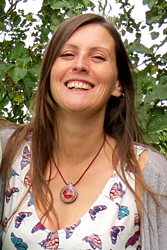📞 Antenatal support line – 0121 455 8982
❤️ Many families first find Little Hearts Matter just after they have learnt that their unborn baby has half a working heart.
The Little Hearts Matter team are here to help make any diagnosis and treatment information easier to understand and will always try to help new families cope with the emotional choices needed during pregnancy. Following a call to the support line you will be linked with a member of the antenatal support team.
Click here if you would like to read our antenatal information and antenatal family stories.
Meet the antenatal support team

Rachel Robinson, Parent volunteer
“I have been married to Adrian for 15 years, we have 4 children and live and work on our family farm in South Shropshire. I had an antenatal diagnosis of HLHS with my 3rd child, Samuel, who was born in 2006 at the Birmingham Women’s Hospital. Samuel has undergone all three stages of surgery at Birmingham Children’s Hospital and has since had a pacemaker. I have done some fundraising for LHM over the last few years and 3 years ago I became a parent support volunteer. I clearly remember how desperate and confused we were by the initial diagnosis and what a lifeline LHM was to me. LHM has continued to support us over the years and I am glad to be able to support other newly diagnosed mums and dads who find themselves in a similar position to the one we were in 10 years ago.”